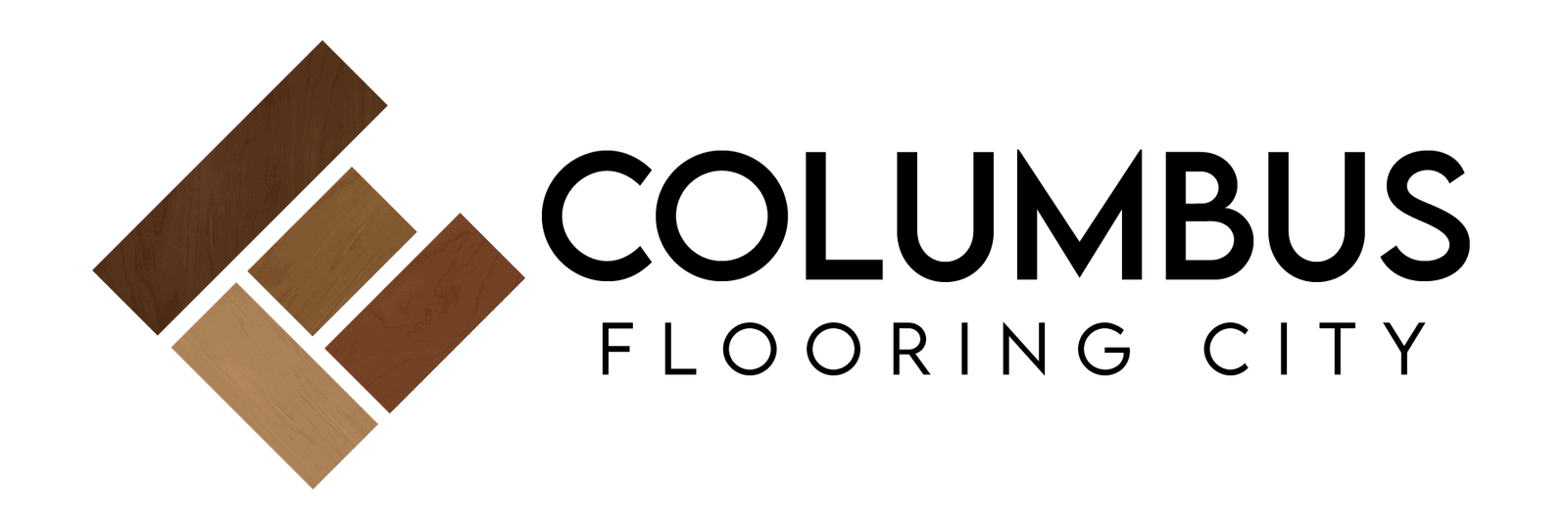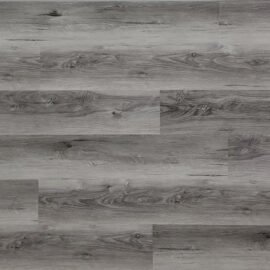When it comes to enhancing the aesthetics and functionality of your home or space, engineered wood flooring is an excellent choice. Its blend of natural beauty, durability, and affordability has made it a popular flooring option for many homeowners. However, before diving into your flooring project, it’s essential to understand the cost considerations associated with engineered wood flooring. In this comprehensive guide, we will explore the factors that influence the cost of engineered hardwood flooring materials, including wood quality, species, thickness, finish, and installation complexity.
Additionally, we will compare the cost of engineered wood flooring with other popular flooring options, such as solid hardwood, laminate, vinyl, and tile. By the end, you’ll have a clearer understanding of how much-engineered wood flooring costs and be equipped with the knowledge to make an informed decision for your flooring project.
Upgrade your home with Columbus Flooring City: Find the perfect flooring solution that aligns with your unique style and budget, with a wide range of options including eco-friendly and modern engineered wood.
Understanding Engineered Wood Flooring:
First things first, let’s clarify what engineered wood flooring is all about. Engineered wood is a popular alternative to solid hardwood flooring. It consists of multiple layers of real wood veneer bonded together, with a supportive core made of plywood or high-density fiberboard (HDF). This construction provides enhanced stability and resistance to moisture, making it suitable for a variety of spaces, including areas prone to humidity fluctuations, like kitchens and basements.
Factors Affecting the Cost of Engineered Wood Flooring
Now that we know the basics, let’s delve into the factors that influence engineered wood flooring cost. Understanding these factors will help you make informed decisions and find the perfect balance between cost and quality:
Quality and Grade of the Wood:
The quality and grade of the wood veneer used in engineered flooring significantly impact the cost. Engineered wood flooring is available in various grades, such as select, rustic, or prime. Higher-quality veneers derived from premium wood species like oak, walnut, or hickory will generally be more expensive than lower-grade alternatives. Select grades feature fewer knots and blemishes, offering a more uniform and refined appearance, while rustic grades embrace the natural characteristics and imperfections, providing a more authentic and rustic charm.
Type of Wood Species Used:
Different wood species come with varying price tags due to their availability, demand, and unique characteristics. Common choices like oak and maple are usually more affordable, making them popular options for those on a tighter budget. However, if you desire a more luxurious and exclusive look, exotic woods such as teak, Brazilian cherry, or mahogany can be pricier due to their rarity, durability, and striking grain patterns.
Thickness and Construction of the Engineered Wood:
Engineered wood flooring thicknesses typically range from 3/8″ to 3/4″. Thicker planks tend to be costlier due to the larger amount of real wood veneer used in their construction. They offer enhanced durability and longevity, as they can withstand more wear and tear over time. Thicker engineered wood flooring also provides better sound insulation and can often be sanded and refinished multiple times, extending its lifespan.
Finish and Surface Treatments:
The type of finish and surface treatments applied to the engineered wood flooring can affect both the price and the overall look of the floor. Engineered wood flooring comes in various finishes, including smooth, hand-scraped, wire-brushed, or distressed. Smooth finishes, which offer a sleek and uniform appearance, are usually more affordable. On the other hand, finishes that create a distressed or aged look, like hand-scraped or wire-brushed, require additional labor and craftsmanship, making them slightly pricier.
Installation Method and Complexity:
The installation method and the complexity of your project can impact the engineered wood flooring cost. Professional installation is recommended for a flawless finish, ensuring proper subfloor preparation, acclimation, and precise installation techniques. The complexity of the installation, such as intricate patterns, herringbone designs, or custom borders, may incur additional charges due to the increased time and expertise required. Also, the engineered wood floor installation cost depends on the method you choose.
Additional Features or Customization Options:
Special features and customization options can add to the cost of engineered hardwood flooring materials. Beveled edges, for instance, create a distinct look by highlighting the individual planks, but they may come at a premium compared to standard square edges. Wider plank widths, such as 7″ or 9″, can provide a more expansive and luxurious feel but can be pricier due to the higher material costs. Unique installation patterns like chevron or basket weave can add complexity and may require skilled installers. Customization options such as staining or wire brushing to achieve specific colors or textures may also come with an extra price.
Discover unmatched elegance by visiting Columbus Flooring City, where you’ll find a vast selection of flooring materials, from stunning hardwood to durable ceramic tiles, all designed to add timeless elegance to your living spaces.
189-07
Exploring the Price Range of Engineer Wood:
Let’s delve into the price range you can expect when shopping for engineered wood flooring. It’s important to note that the engineered wood flooring cost can vary significantly based on factors such as wood species, quality, thickness, finish, and regional factors.
From $5 to $15 or more, the cost per square foot or square meter of engineered wood flooring depends on what and how much you are purchasing. However, it’s difficult to have a general estimate of cost when there are several variables influencing the final price.
Wood Species and Quality:
As we discussed earlier, the type of wood species used in engineered wood flooring can affect the cost. Common wood species like oak and maple are typically more affordable, while exotic woods such as teak or Brazilian cherry can be pricier due to their rarity and unique aesthetics. Additionally, higher-quality wood veneers and grades will generally come at a higher price point.
Thickness and Construction:
Thicker planks of engineered wood flooring tend to be costlier due to the larger amount of real wood veneer used in their construction. Thicker flooring options offer enhanced durability and longevity. However, thinner options can still provide a beautiful and reliable flooring solution at a lower cost.
Finish and Surface Treatments:
The type of finish and surface treatments applied to the engineered wood flooring can impact the price. Standard smooth finishes are usually more affordable, while specialty finishes like hand-scraped or distressed can add to the cost due to the additional labor and craftsmanship involved.
Regional Differences and Market Trends:
It’s essential to consider regional differences and market trends when determining the cost of engineered wood flooring. The availability of certain wood species and the costs associated with transportation or importation can vary across different regions. Additionally, market trends and supply and demand dynamics can influence pricing. For example, if a particular wood species is currently in high demand, it may drive up the cost.
To get an accurate understanding of the price range in your specific location, it’s recommended to consult with local flooring suppliers and professionals. They can provide you with detailed quotes based on your requirements and help you navigate any regional cost variations.
Columbus Flooring City empowers you to unleash your creativity and personalize your living spaces with our extensive range of flooring choices, allowing you to express your unique style and bring your design visions to life.
189-07
Cost Comparison with Other Flooring Options:
Engineered hardwood flooring prices are based on the location where you live. To help you make the right decision based on your budget and preferences, let’s compare engineered wood flooring costs with other popular flooring options:
Solid Hardwood Flooring:
Solid hardwood flooring offers its own charm, durability, and timeless appeal. However, it tends to be more expensive than engineered wood flooring. It is estimated that the cost of solid hardwood flooring is $8 to $20 or more per square foot, as opposed to engineered wood flooring. This price depends on the wood species, grade, and finish. It’s important to note that higher-end hardwood options and rare wood species can significantly increase the price.
Laminate Flooring:
Laminate flooring is a budget-friendly alternative that replicates the appearance of wood. It consists of a composite material with a printed image of wood grain on the surface. Laminate flooring generally falls within a lower price range, making it an attractive option for cost-conscious homeowners. The cost of laminate flooring typically ranges from $2 to $8.
Vinyl Flooring:
Vinyl flooring offers a wide range of styles, including wood look-alikes, stone patterns, and more. It is known for its affordability, durability, and ease of maintenance. Vinyl flooring is often more budget-friendly compared to engineered wood flooring. Ranges from $2 to $10 per square foot, the cost of vinyl flooring depends on a variety of factors such as quality, thickness, and design. Luxury vinyl options with enhanced features may fall on the higher end of the price range.
Tile Flooring:
Tile flooring, especially ceramic or porcelain, is renowned for its durability and versatility. It is an excellent choice for high-moisture areas such as kitchens and bathrooms. The cost of tile flooring varies depending on the type of tile chosen, design intricacy, and installation complexity. Tiles generally cost between $3 and $10 per square foot. Natural stone tiles, such as marble or travertine, can be pricier due to their unique aesthetics and higher material costs.
When comparing the cost of flooring options, it’s important to consider factors beyond just the initial price. Durability, maintenance requirements, lifespan, and aesthetic preferences should also be taken into account. While engineered wood flooring may have a higher upfront cost compared to laminate or vinyl, it offers the beauty and warmth of real wood while providing better durability and the option for refinishing in the future.
Transform Your Space with Columbus Flooring City. Explore our exquisite collection of hardwood, laminate, and luxury vinyl flooring options to elevate the beauty and functionality of your home.
Cost Comparison Table
Ultimately, the choice of flooring should align with your budget, style preferences, and the specific needs of the space. By considering the cost and characteristics of different flooring options, you can make an informed decision that meets both your financial considerations and desired aesthetic appeal.
| Flooring Option | Price Range (per square foot) |
| Engineered Wood Flooring | $5 – $15+ |
| Solid Hardwood Flooring | $8 – $20+ |
| Laminate Flooring | $2 – $8 |
| Vinyl Flooring | $2 – $7 |
| Tile Flooring (Ceramic or Porcelain) | $3 – $10 |
Tips for Budgeting and Cost Savings
There are always some other factors that impact engineered hardwood floor installation cost. Now that we have an idea of the costs involved, here are some tips to help you budget effectively and potentially save some money:
Set a Realistic Budget:
Determine your budget early on and stick to it. Consider not only the cost of materials but also the expenses associated with installation, underlayment, and any additional materials required.
Consider Long-Term Durability and Maintenance Costs:
Keep in mind that investing in higher-quality engineered wood flooring may save you money in the long run. Durable flooring options may require less frequent replacement or maintenance, reducing overall costs.
Explore Different Suppliers and Get Multiple Quotes:
Shop around and compare prices from various suppliers. Getting multiple quotes will help you identify the best deals and potentially negotiate for better prices or additional services.
Evaluate Overall Value:
Rather than solely focusing on the price, evaluate the overall value of the flooring option. Consider factors like durability, warranty, aesthetics, and suitability for your space. Sometimes paying a bit more upfront can lead to long-term satisfaction.
Frequently Asked Questions:
- How much does it cost to install 1000 square feet of engineered wood floors?
The cost of installing 1000 square feet of engineered wood floors can vary depending on factors such as the quality of the materials and labor costs. On average, you can expect to pay around $8,000 to $12,000 for installation.
- What are the disadvantages of engineered wood flooring?
Some disadvantages of engineered wood flooring include its susceptibility to moisture damage, limited refinishing options, and a shorter lifespan compared to solid hardwood. It may also be more prone to scratches and dents.
- How much does it cost to install 2000 square feet of engineered hardwood floors?
The cost of installing 2000 square feet of engineered hardwood floors can vary based on factors such as the type of wood, installation method, and region. On average, you can expect to pay between $16,000 and $24,000 for installation.
- Is engineered flooring expensive?
Engineered flooring can be more affordable compared to solid hardwood flooring. However, the cost of engineered flooring varies depending on factors such as the quality of the materials and the complexity of the installation. Generally, it is considered a cost-effective alternative to solid hardwood flooring.
Conclusion:
Understanding the cost factors of engineered wood flooring is essential before embarking on your flooring journey. By considering factors like wood quality, type of wood species, thickness, finish, installation complexity, advantages and disadvantages of engineered wood flooring, and additional features, you can make an informed decision that aligns with your budget and style preferences. Remember to compare prices, evaluate the overall value, and plan your budget wisely. With the right knowledge and careful consideration, you can find the perfect engineered wood flooring that adds beauty and functionality to your space for years to come.



